City of Birmingham Symphony Orchestra
Programme
- Edward Elgar: Cello Concerto in E minor Op. 85
- Anton Bruckner: Symphony No. 6 in A major
Performers
- Mirga Gražinytė-Tyla - conductor
- Gautier Capuçon - cello
Price
Expected end of the event 22.00
In the footsteps of Sir Simon
An orchestra with more than a century of tradition, the City of Birmingham Symphony Orchestra (CBSO), is returning to the festival after nearly thirty years. “It will be just our second visit to the Festival, and almost 30 years since our first, which was in 1994 with our then Music Director Sir Simon Rattle”, says the orchestra’s chief executive Stephen Maddock. It was with this very orchestra that Rattle began his stellar career. This time, leading the orchestra from Birmingham in a programme combining the music of Edward Elgar and Anton Bruckner will be its present music director Mirga Gražinytė-Tyla. “She is one of today’s most interesting and most inspirational musicians”, says Prague Spring Festival programming director Josef Třeštík. “But this will not be her first appearance—she already performed at the festival in 2014. Back then, few people knew her name. She was conducting Kremerata Baltica, and it was Gidon Kremer who played a substantial role in her musical career,” says Třeštík. Seven years have passed, and the conductor is returning to the festival as a widely acclaimed figure of classical music whose face has appeared on the cover of perhaps every prestigious music journal and whose activities are the topic of lively discussion. “Mirga Gražinytė-Tyla has followed in Sir Simon’s footsteps, and has a particular love of the beautiful Symphony No.6 by Bruckner”, says Maddock. “Sir Edward Elgar’s music has always been a central part of the CBSO’s repertoire—indeed the Orchestra’s first full symphonic concert in 1920 featured Sir Edward conducting his Cello Concerto,” he explains. Playing the solo part will be the French cellist Gautier Capuçon, a Prague Spring Festival artist-in-residence. “I’m enormously pleased to be performing the work in Prague with the CBSO and Mirga Gražinytė-Tyla”, he says enthusiastically. “The first time we played it together, I felt an extraordinary affinity. Her conducting is as natural as breathing, and she follows the melodic lines as if she were singing”, he adds.
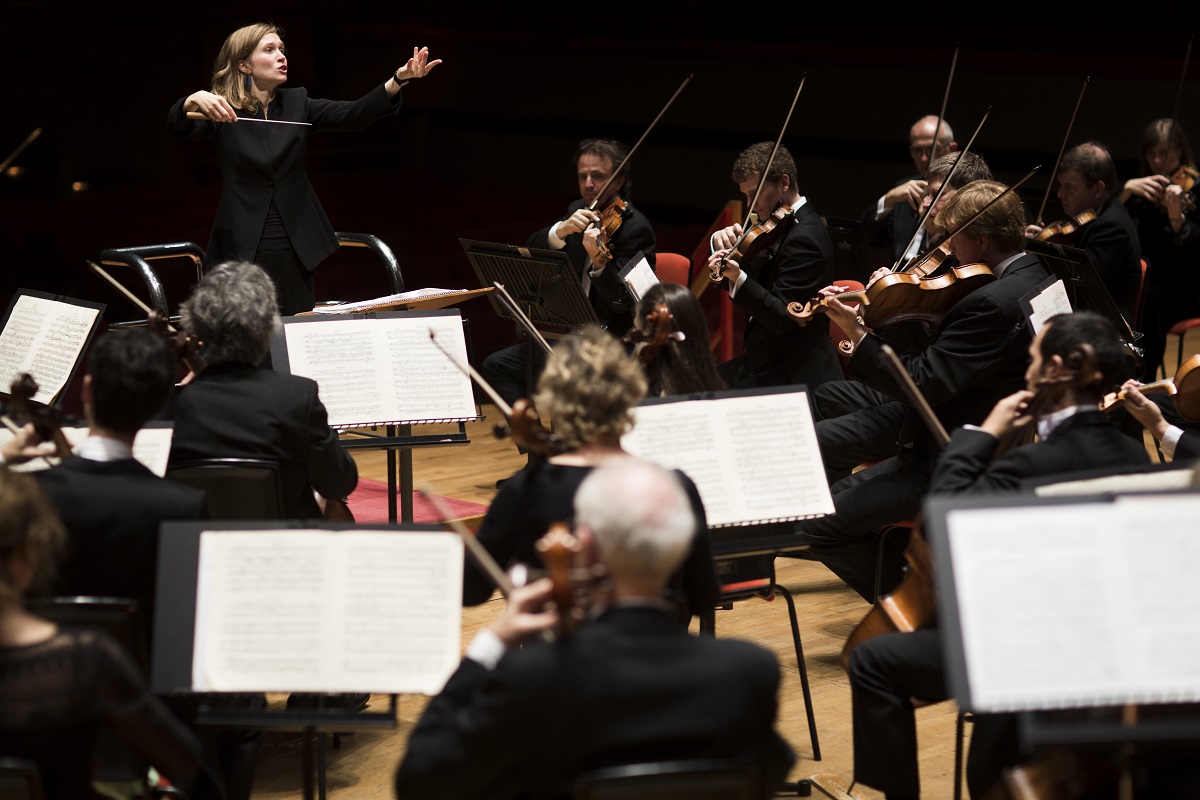
Mutual trust creates a space for exploration
The Lithuanian conductor Mirga Gražinytė-Tyla is one of the greatest artistic figures of her generation. She was the winner of the 2012 Salzburg Competition for Young Conductors, and since 2016 she has been the music director of the City of Birmingham Symphony Orchestra. She is appearing at the Prague Spring Festival as the holder of the title of 2020 Opus Klassik Conductor of the Year, a prestigious German award. She took over the orchestra when she was 29 years old. This was a major event for the world of classical music, and not just in the United Kingdom. The critic Norman Lebrecht, known for his provocative commentary, wrote after her engagement that next to the CBSO, London’s orchestras are now going to look “stale and middle-aged”. The young artist at the helm of the prestigious orchestra provoked great expectations, but the orchestra did not doubt her even for an instant. In an interview for the magazine Gramophone, the conductor recalled what was going through her head when she accepted the offer: “I felt joy, of course, but also responsibility: taking on those incredible musicians and then thinking about the direction of the orchestra, its role in the city and everything.” No one in Birmingham was concerned that they were hiring a woman. After all, there have been women in the orchestra and its management since the very beginning more than 100 years ago. Mirga Gražinytė-Tyla because the first woman in her field to sign an exclusive contract with the Deutsche Grammophon label, and her very first recording with the symphonies of Mieczysław Weinberg, which she made with the CBSO, Gidon Kremer, and the Kremerata Baltica chamber orchestra, was awarded as the 2020 Album of the Year by the magazine Gramophone. For the same journal, Richard Bratby wrote: “With Mirga Gražinytė-Tyla, something unexpected and illuminating occurs in every concert…The audience responds, the orchestra responds, and—as with Oramo and Sir Simon Rattle before her—that mutual trust creates a space for exploration.”
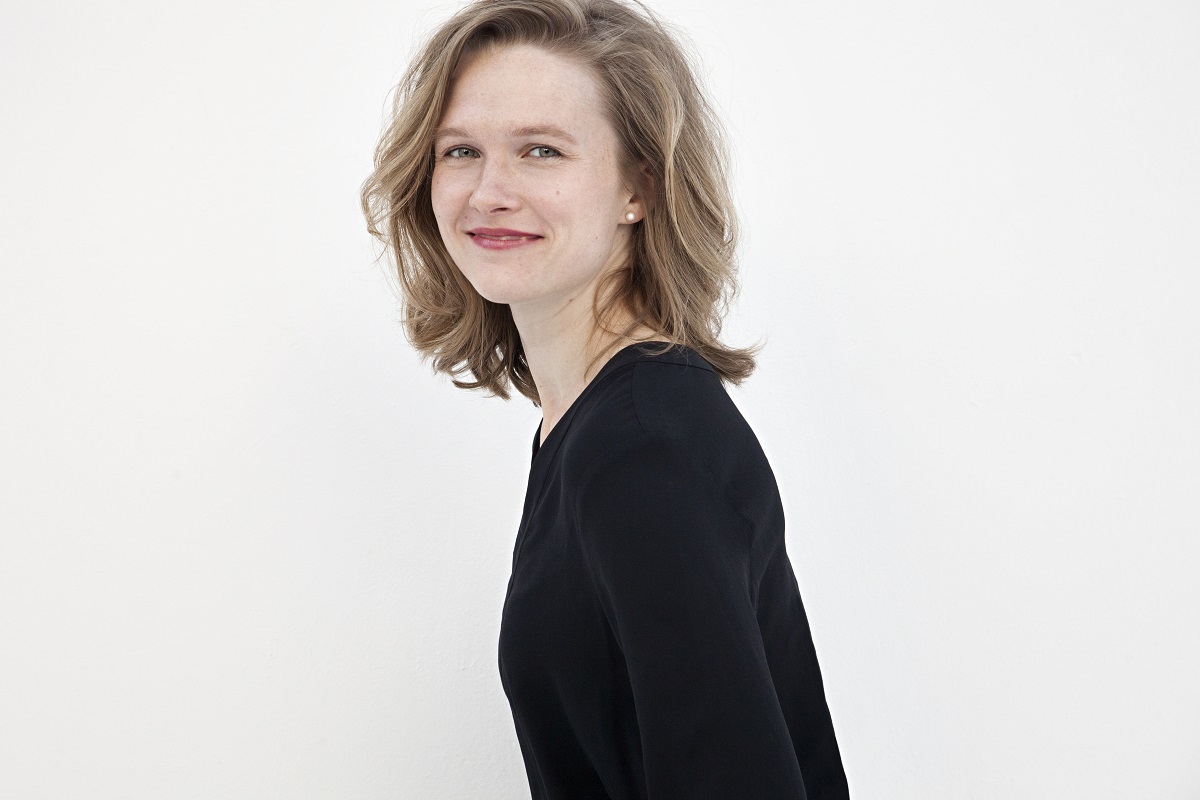
Youthful spirit
Mirga was born in Vilnius to a musical family and graduated from the conducting programme at the Kunstuniversität in Graz, then she continued her studies at the conservatoires in Bologna, Leipzig, and Zurich. Engagements followed in Heidelberg and Bern, and for two years she led the Landestheater in Salzburg. She also received the Dudamel Fellowship with the Los Angeles Philharmonic, which was followed by invitations from orchestras and opera houses around the world. All of this led to an engagement with the City of Birmingham Symphony Orchestra. When Gramophone asked her how work with the orchestra was going, she told the magazine that “this orchestra has a youthful spirit, in the sense of being open to things: being curious, wanting to discover new repertoire, new ways of playing known repertoire, and new ways of carrying out our role in society.” Her other recordings for Deutsche Grammophon include two albums with the title “The British Project”, on which she and the CBSO present, among other things, works by Elgar, Walton, and Britten. With the Lithuanian National Symphony Orchestra and the Kremerata Baltica chamber orchestra, she has recorded works by the contemporary Lithuanian composer Raminta Šerkšnytė. In the future, she wishes to focus on the music of the composers Ruth Gipps and Michael Tippett, who are associated with the CBSO. Some of the highlights of the coming season will be her participation at the Lucerne Festival with the Mozarteum Orchestra, a concert performance of Janáček’s opera The Cunning Little Vixen with the Birmingham orchestra at Symphony Hall in their own city, in Dortmund, and at the Elbphilharmonie in Hamburg, then in the winter of 2022 she will be conducting a new production of that same opera at the Bavarian State Opera with the stage director Barrie Koska. Her performances with the CBSO will include concertos with the cellists Sheku Kanneh-Mason and Julia Hagen and the violinist Patricia Kopatchinkaja, and she will also conduct Brahms’s German Requiem and Weinberg’s symphonies. In September 2021 the orchestra announced that beginning in April 2023, Kazuki Yamada would be Mirga Gražinytė-Tyla’s successor as chief conductor. The Lithuanian artist will remain as the principal guest conductor.
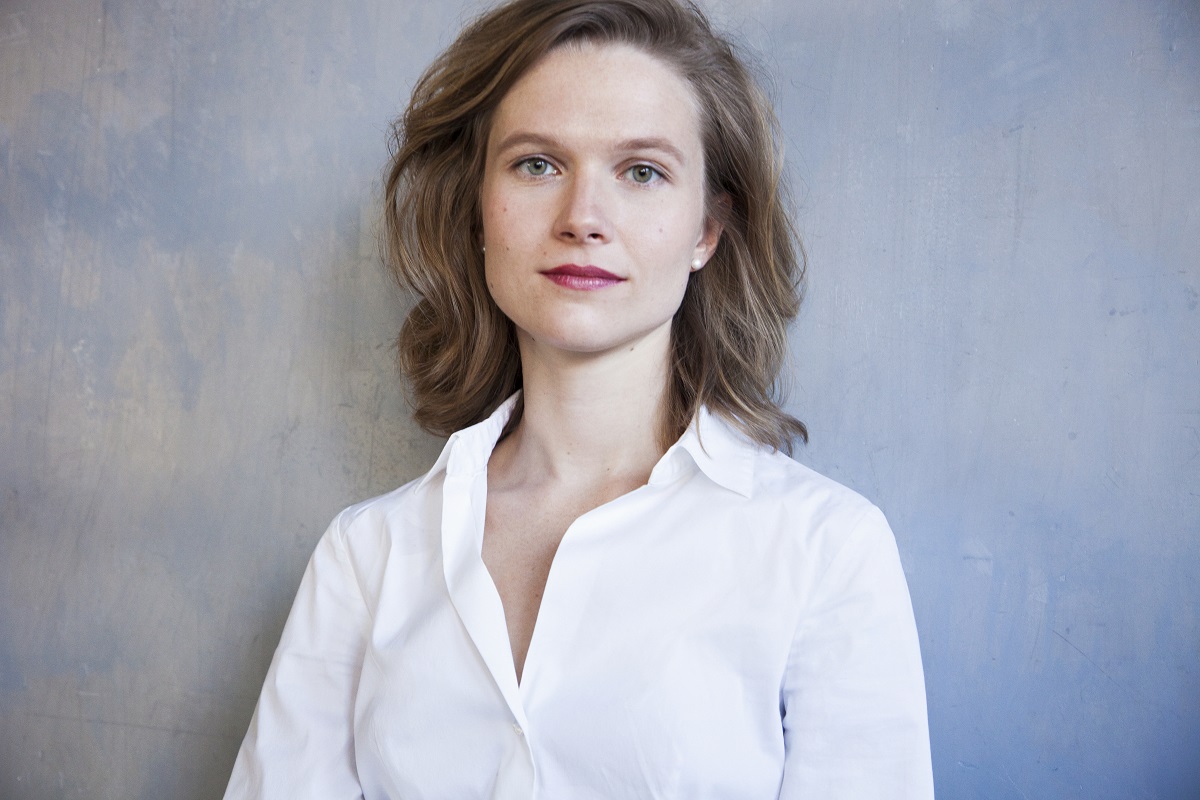
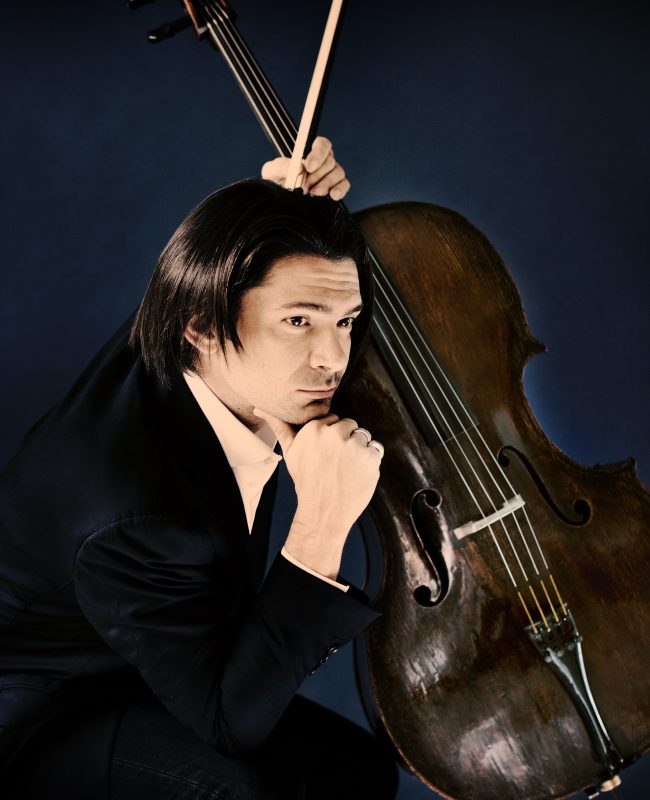
A profile of the Artinst-in-Residence Gautier Capuçon
The artist-in-residence for the 77th annual Prague Spring Festival will be the French cellist Gautier Capuçon. The festival public will have the opportunity to discover one of the world’s finest instrumentalists on three different programmes. In the Rudolfinum’s Dvořák Hall he will appear with the pianist Jérôme Ducros (16 May), with whom he has been collaborating successfully for 25 years, at the Prague Crossroads he will present works for solo cello that are included on his most recent album Souvenirs (17 May), and finally with the chief conductor of the City of Birmingham Symphony Orchestra Mirga Gražinytė-Tyla he will perform Edward Elgar’s great Cello Concerto (18 May). “I am enormously pleased and honoured to have been invited to this year’s festival”, says the artist concerning his residency at his very first appearance at the festival. “I’m very happy and honoured to be invited for the next edition of the festival. It’s going to be fantastic and also intense to be able to experience three different programmes. I’m very impatient to be back; Prague is a city of my heart; I have great memories of it.”
.
Artinst-in-Residence Gautier Capuçon
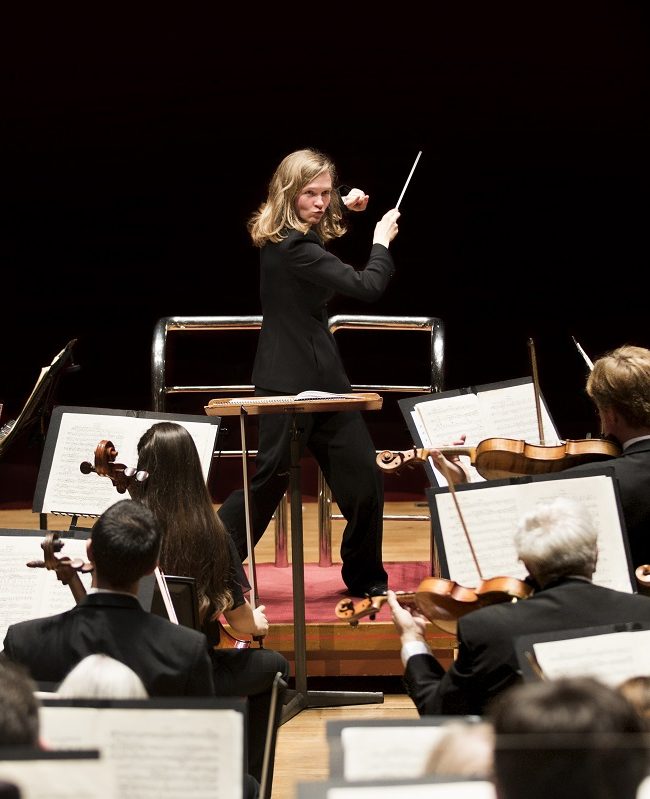
The right energy
The City of Birmingham Symphony Orchestra (CBSO) is the flagship of musical life in Birmingham and the entire West Midlands region of central England. The orchestra’s tradition dates back to 1920, when the conductor of its first symphonic concert was the composer Sir Edward Elgar, whose music begins this Prague Spring Festival programme. After that came a succession of music directors: Adrian Boult, George Weldon, Andrzej Panufnik, and Louis Frémaux. Simon Rattle brought the orchestra worldwide fame with his progressive ideas, and after him the chief conductors Sakari Oramo and Andris Nelsons further strengthened that orientation.
„It was a great shock“
The Cello Concerto in E minor Op. 85 is the last completed major work by Edward Elgar (1857–1934). This music of extraordinary depth and intensity is elegiac and contemplative. Feelings of uncertainty and desolation run through the concerto like a leitmotiv, with catharsis arriving only in the final movement. Elgar composed the work in the summer of 1919, when he moved to the country in hope of improving his health. He needed to come to terms with not only his own vulnerability, but also the consequences of the war and the departure of the “Old World”. A year earlier he wrote to the poet Laurence Binyon: “I do not feel drawn to write peace music somehow… the whole atmosphere is too full of complexities for me to feel music to it…”
Believe it or not, the work was a failure at first. The October 1919 premiere was unsuccessful because of a lack of rehearsal time. Elgar was sharing the concert with Albert Coates who, as chief conductor for the approaching main season, wished to make a good impression, so he used up the rehearsal time at Elgar’s expense. Critics praised the concerto but called the London Symphony Orchestra’s performance under Elgar’s baton “miserable”. After that, the soloist Felix Salmond never played the work outside of England. Elgar later performed the work with the cellist Beatrice Harrison, and they recorded it in 1920. The concerto first achieved worldwide fame when the legendary cellist Jacqueline du Pré recorded it in 1965. It was her recording that Prague Spring Festival artist-in-residence Gautier Capuçon first heard at seven years of age. “It was a great shock for me”, he recalls. “Now when I play the work, it is always very emotional. It is one of Elgar’s best works and one of the most important cello concertos in the entire repertoire.”
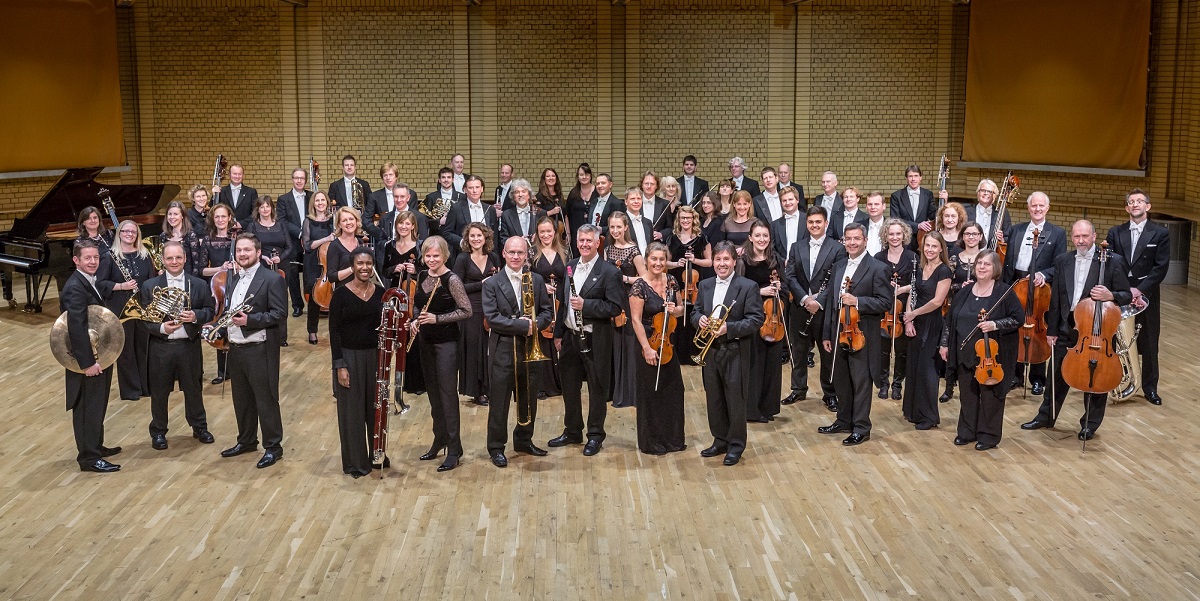
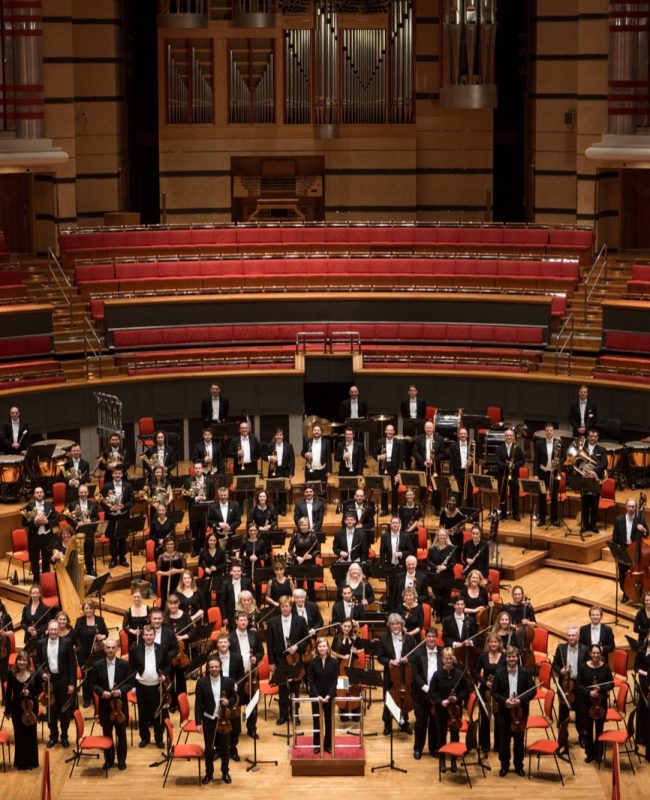
An intimate religious dialogue
The symphonic music of Anton Bruckner (1824–1896) was given many labels already during the composer’s lifetime, and it has not entirely rid itself of them to this day. There were complaints about endless stretches of music leading nowhere, and Bruckner was even accused of having composed one symphony nine times. As late as 1957, a critic for The Musical Times wrote that from the Symphony No. 6 in A major, “One has the impression…that we are traversing a town with innumerable traffic lights, all of which turn red as we approach them.” This shows us one thing: it is not easy to grasp music that is based formally on late Beethoven and Schubert and the colours and harmonies of Wagner, and that is an intimate religious dialogue that reflects the composer’s experience as an organist.






